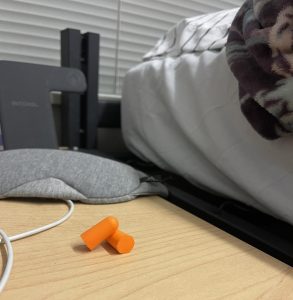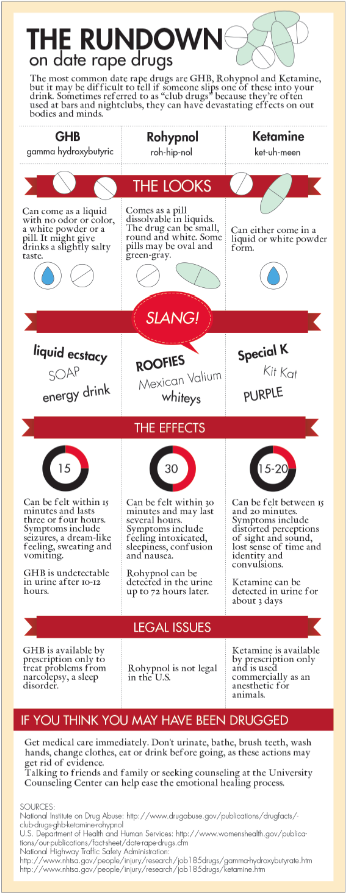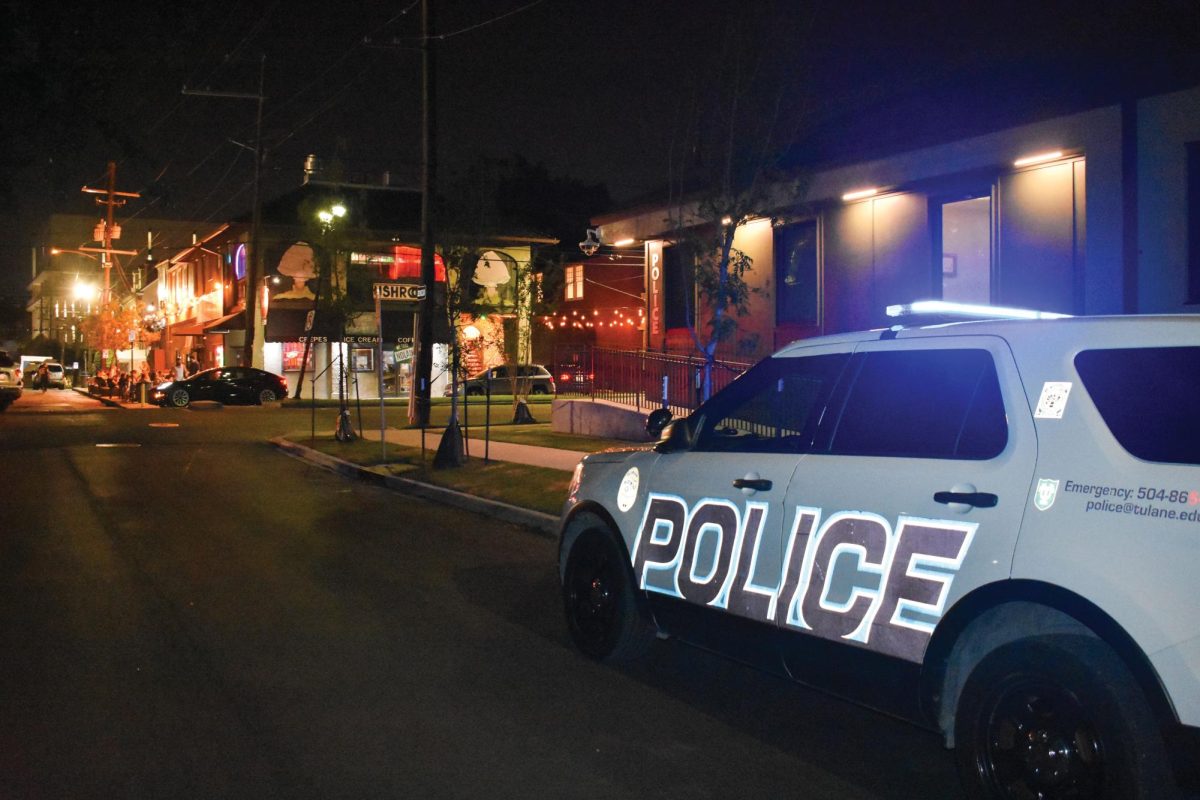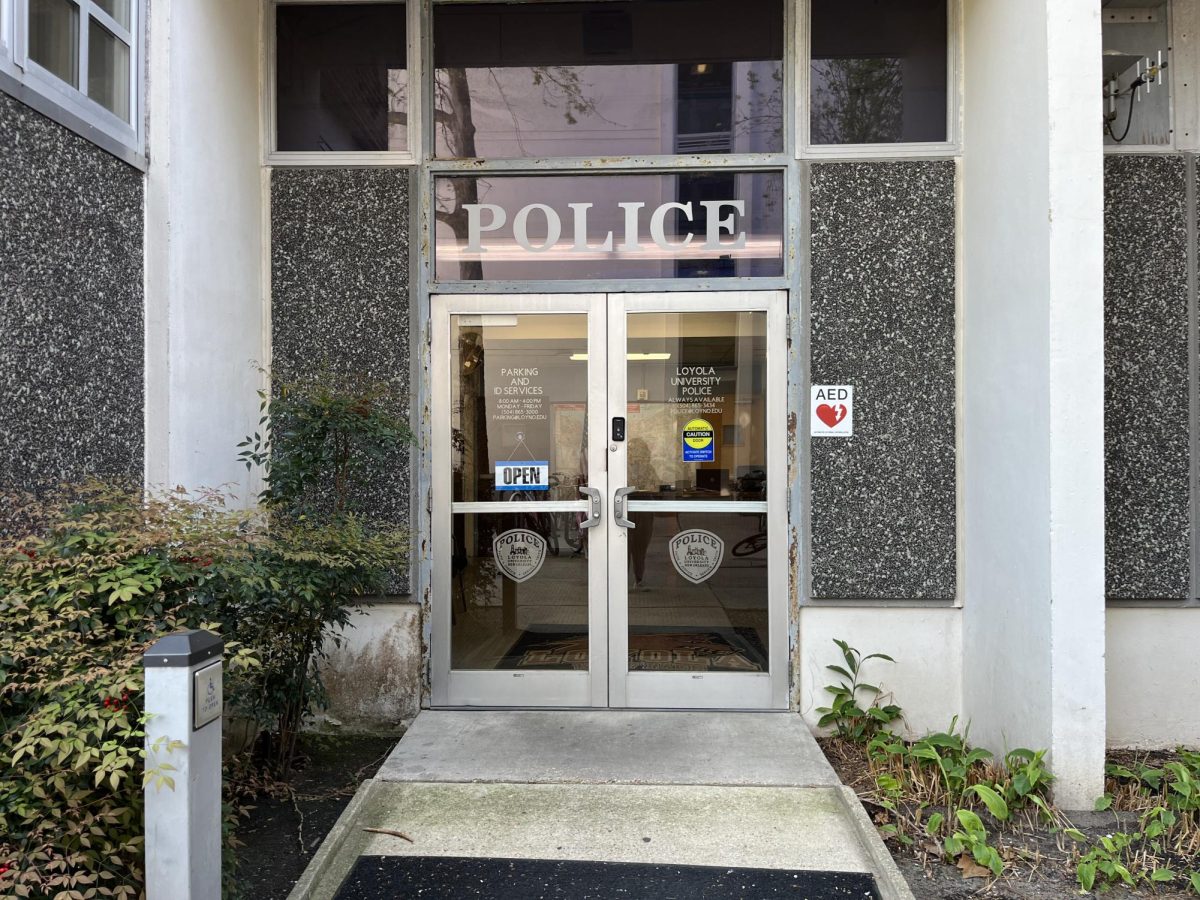Imagine you’re having a night out with friends during the Krewe de Vieux parade at the Dragon’s Den. You buy a drink from the bar. Then, in your next moment of consciousness, you’re lying on the ground in Washington Square surround by five men you don’t know.
This horror story was the reality for a 21-year-old former Loyola student, A’12. Due to the nature of the incident, she will be referred to as Jane. She believes someone may have drugged her that previous night.
“A middle-aged woman came out of nowhere, seemingly, and said ‘I won’t let anything else bad happen to you’ and brought me to a family friend’s house nearby,” Jane said.
Though she does not know what type of drug was used to incapacitate her, it could have been one of many drugs people intentionally put into others’ drinks.
Rae Taylor, criminal justice professor, said the types of drugs used in a drugging incident depend more heavily on what is available, rather than the effect the person administering the drug is looking for.
Common drugs include GHB and Valium, Taylor said, which are both depressants and may cause drowsiness and relaxation. According to Karen Reichard, director for the Women’s Resource Center, drugs like Ecstasy, Rohypnol and Ketamine give the person who has them in his or her system intoxicated-like symptoms.
“One of the dangers of these drugs is that when combined with alcohol, it can kill,” Reichard said. And because these drugs produce reactions, like lack of body control, the person drugged often doesn’t realize they’ve been drugged if they’ve also been drinking alcohol, she said.
The effects on Jane’s body the day after the incident felt different than a hangover. “The next day I had a fever and just felt really out of it, not hungover at all, just, off. I knew what happened was not normal,” she said.
Along with a fever, there are other symptoms someone might experience if he or she has been drugged. “If after one drink you can’t stand up, you’ve probably been drugged,” Reichard said.
Taylor said having problems with memory is a symptom students should be aware of when considering if he or she has been drugged. While these symptoms may be a sign of having been drugged, there is little factual evidence one can use to prove it.
To prove that you’ve been drugged is difficult “unless there’s an eyewitness,” Reichard said. By the time the victim may realize he or she might have been drugged, the drug could already be out of their body, making it impossible to test the body for drugging, Reichard said.
If someone feels he or she has been drugged, Taylor emphasized the importance of seeking medical attention as a first step. “Because drugs are in your system for a finite amount of time, it’s important to seek medical attention as soon as you suspect this may be the case,” Taylor said. By getting medical attention while the drug is in the body, a student can be tested to determine the following actions to be taken.
The second priority if a person suspects he or she has been drugged, Taylor said, is to get to a safe place with safe people. She also said it’s important not to taint possible evidence. “Don’t take a shower, don’t change clothes, because you’ll be destroying evidence going forward.”
About a week after her incident, Jane said she got tested at Student Health Services to ensure she was not raped. The results were negative but afterward, she did not get counseling or report this incident to the Loyola University Police Department nor the New Orleans Police Department. “I was OK, and didn’t remember enough details to feel like going to the police would really do anything. I talked about it with my boyfriend, brother and best friend. That was enough support for me,” she said.
Because these incidents usually happen after hours, Taylor suggests LSU Interim Public Hospital for medical attention. At the University Hospital, Taylor said the Sexual Assault Nurse Examiner unit assesses the victim for sexual assault and offers drug testing.
Brooks Zitzmann, staff counselor at the University Counseling Center, said LSU Interim Public Hospital is currently the only hospital in Orleans parish to “offer comprehensive forensic exams for sexual assault victims.” She said in this treatment option, the exam is free, as is the first round of STI medications. Zitzmann also said Tulane Emergency Medical System is available to “provide an evaluation” and is able to transport students to a hospital if the student feels it is necessary.
Resources available on campus include the University Counseling Center, the Women’s Resource Center and LUPD. Reichard said if the person is not comfortable talking to someone in the University Counseling Center or in the Women’s Resource Center, she suggests finding someone on campus in which to confide, like a professor the person knows well. Speaking to someone in University Ministry is another option.
Captain Roger Pinac of LUPD said that although the first priority is always seeking medical attention, another priority is to report a drugging incident to the police. Pinac said if an incident happens off campus, LUPD has no jurisdiction and cannot take direct action based on that, unless the incident involves another student. Lieutenant Angela Honora of LUPD said if it happens off campus, LUPD should be notified in order to let other students know via BOLOS. Since August 2012, Honora and Pinac said there have been three sexual assaults reported directly to LUPD, excluding those reported via third party sources such as professors or counselors reporting on behalf of a student.
While Zitzmann recommends medical attention as an option following a sexual assault, she emphasizes the importance of the victim feeling a sense of control over his or her body. “In sexual assault, control over one’s own body is taken away. Allowing a victim to regain a sense of control by providing options and allowing them to make the decision is a step toward healing,” Zitzmann said.
Taylor said an off-campus resource that can be helpful is the Metropolitan Center for Women and Children. Taylor said the center has a 24-hour crisis hotline. The center also has medical advocates who can be dispatched at any time. “If the person didn’t want to call the police or counseling center, they could call the Metropolitan Center for Women and Children. The medical advocates can walk you through what you need to do if you think you’ve been drugged,” Taylor said.
To take precaution against getting
drugged, Taylor advises mainly to be vigilant. “Order your own drink. If someone buys you a drink, watch him or her closely while they make it. Bartenders do this too, so watch them while they pour your drink.”
Following this incident, Jane’s outlook changed on some things in her life. “Before this happened, I felt very at-home going out and would let my guard down. I don’t do that anymore. If I buy a drink, I don’t put it down. It made me realize that there are people out there with bad intentions, but also, there are good people out there, like the woman who helped me out,” she said.












